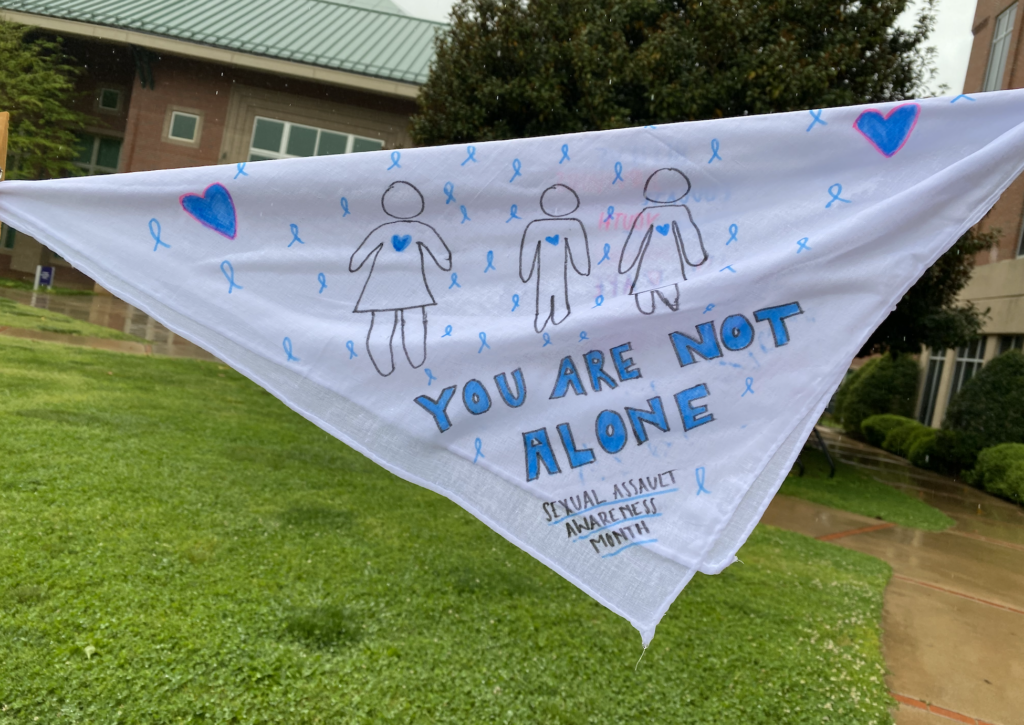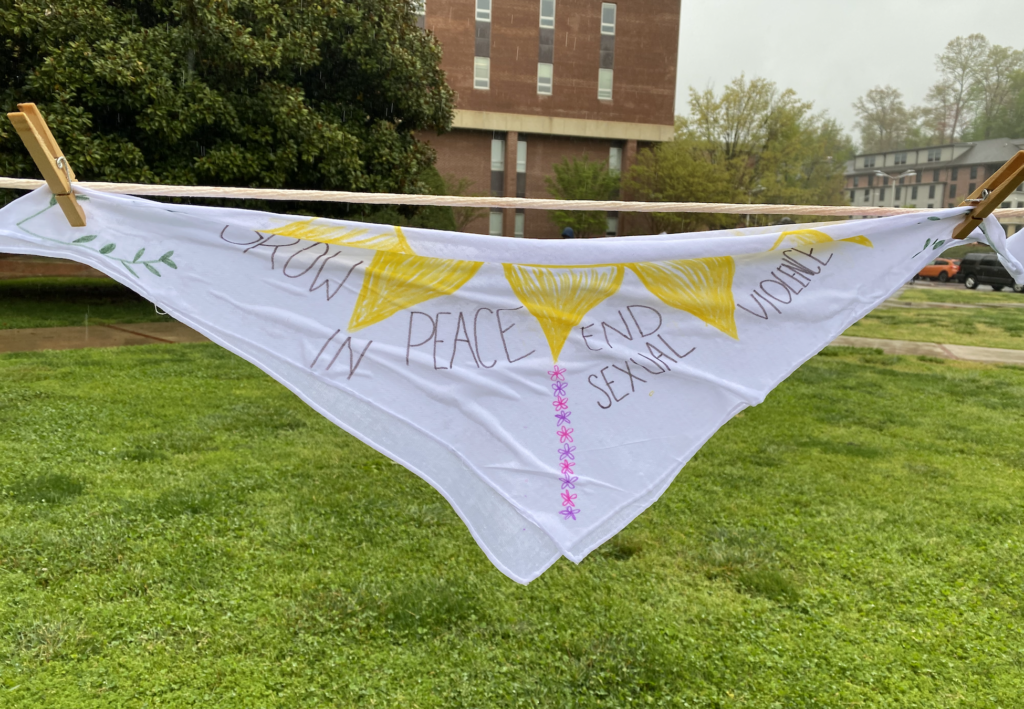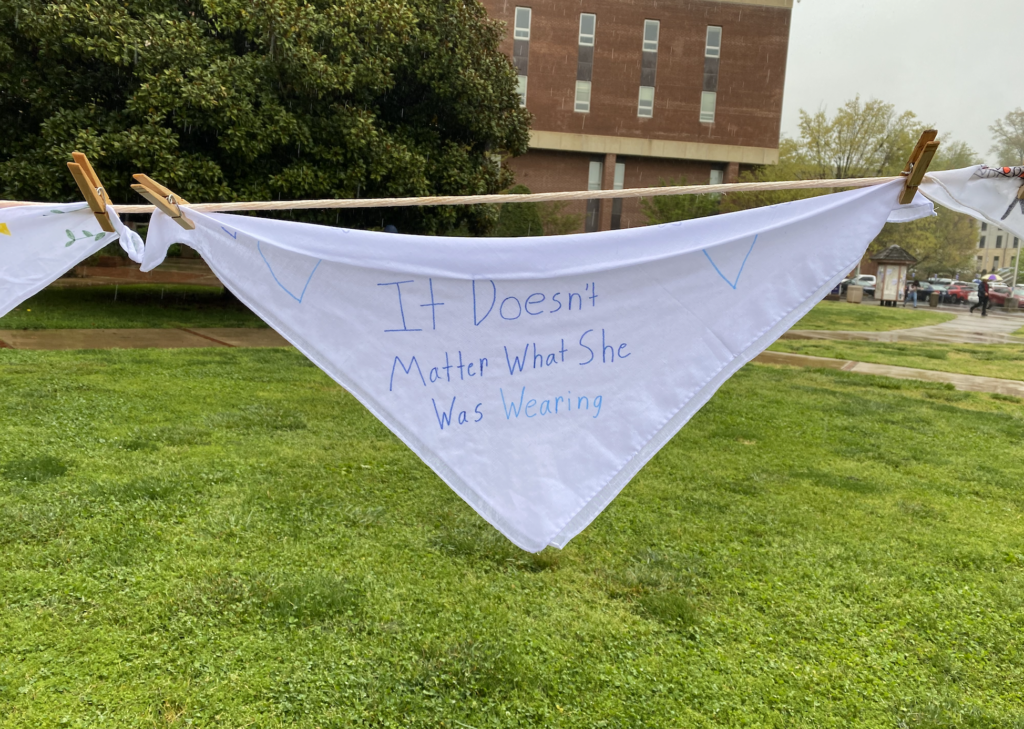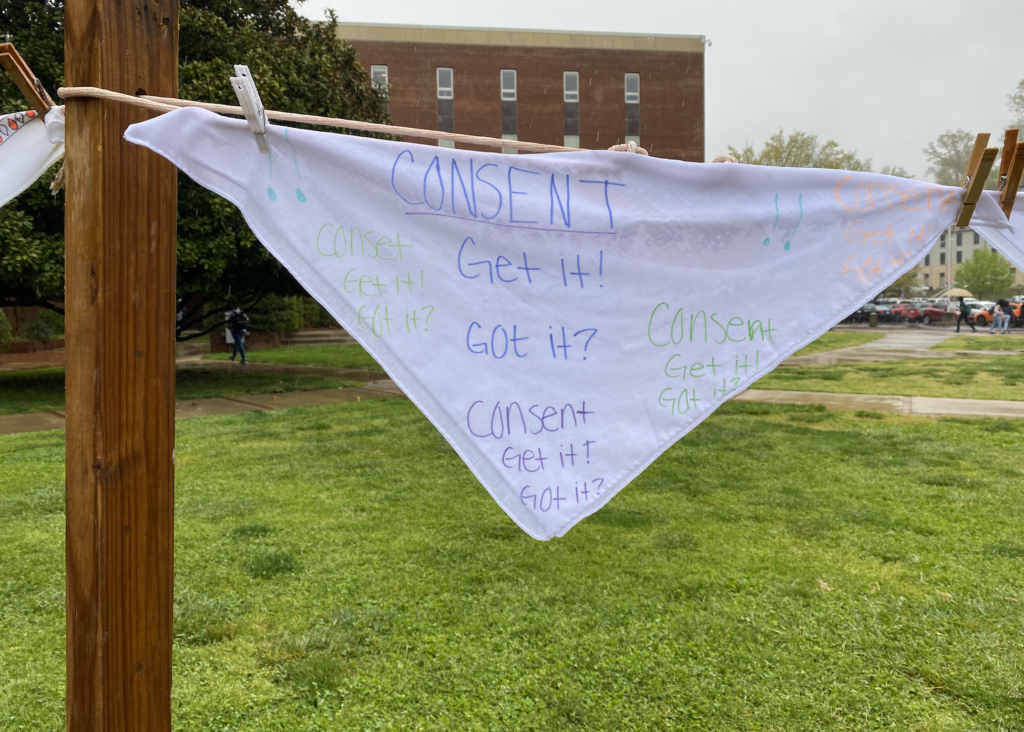The Clothesline Project was on full display between the University Center building and the Alumni Tower on Tuesday, April 26.
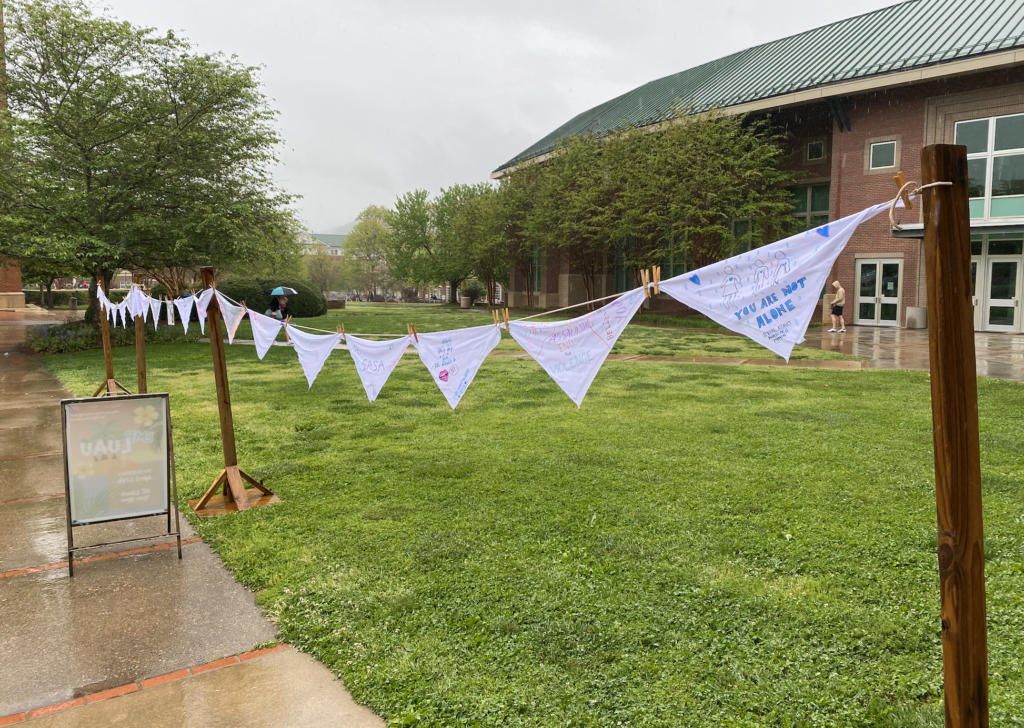
This was one of the last events in the last week of April, which WCU has labeled Sexual Assault Awareness Month.
Since 1990, the Clothesline Project is a national organization that has focused on having students decorate pieces of clothing that speak out against sexual assault.
Members of the student organization WCU Students Against Sexual Assault (SASA) were present for the Clothesline Project. About 30 bandanas were decorated and put on display.
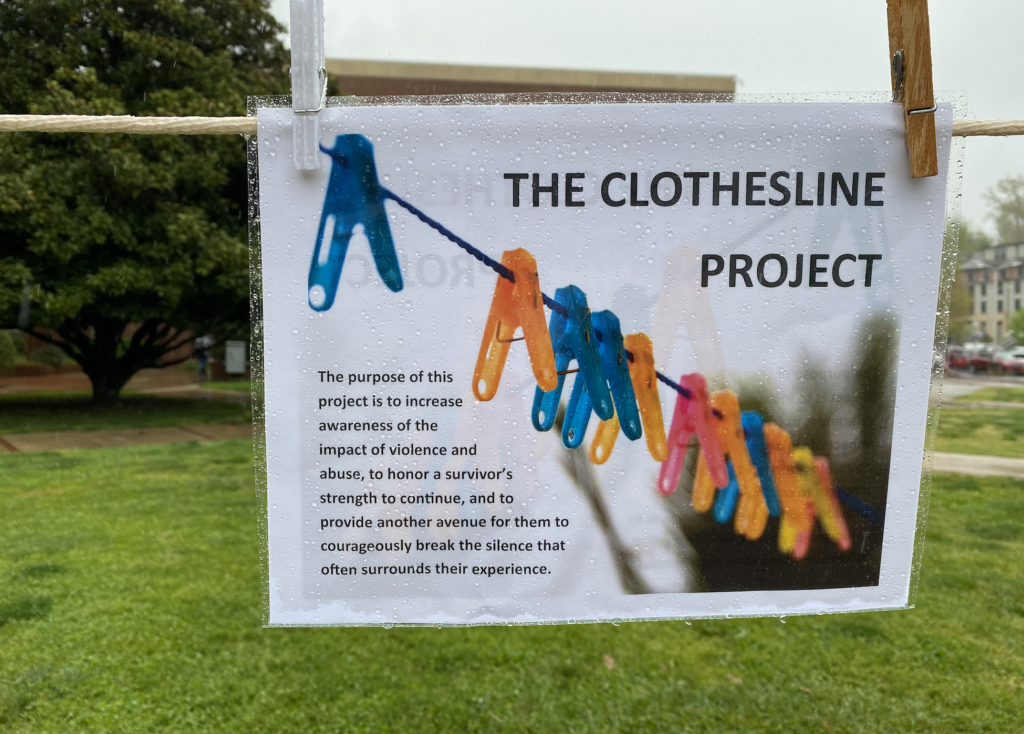
Even though rain was in the forecast that day, the project went ahead as planned.
“I feel like the Clothesline Project gives all people a voice, allows them to be heard and how they feel about it,” said Monyae Joyner, Intercultural Affairs Office Assistant, who observed the bandanas for herself.
Events like this are made to help students at WCU become more aware of sexual assault. According to the 2021 Annual Fire Safety & Security Report, there were five assaults (rapes) on campus in 2020. This is less than the 15 cases reported on campus in 2019.
The local Sylva Herald paper reported on a case from late 2021 in an article, when an 18-year-old WCU student was arrested and charged with rape that took place in the Allen Residence hall.
Despite the statistics showing these acts of sexual violence have gone down, it is still a problem on campus. That’s why WCU and groups like SASA and Intercultural Affairs still consider sexual assault and other despicable acts to be a “grave matter.”
According to data from the National Sexual Violence Resource Center, “one in five women in the United States experienced completed or attempted rape during their lifetime.”
A survey from the Association of American Universities (AAU) in 2019 of 30 U.S. universities found that undergraduate students who identify as transgender, queer, non-binary and female reported having the highest rates of other forms of sexual misconduct.
According to more data from the AAU, “65.1 percent reported experiencing harassing behavior since first enrolling at the school, 21.5 percent with partners reported intimate partner violence (IPV), and 15.2 percent stalking. Among undergraduate women 59.2, 14.1, and 10.0 percent experienced harassing behavior, IPV, and stalking, respectively.”
Joyner said that events like the Clothesline Project are important for anybody who either knows someone that was sexually assaulted or has survived sexual assault.
“This shows that there are people that show support and you can relate to,” Joyner said. “Even if it has never happened to you, the least you can do is show your support.”
If you or someone you know has been assaulted or harmed in any way, call (828) 227-8911. If you would like to learn more about SASA, visit their Facebook page. For more information about the Clothesline Project, visit The Clothesline Project website.
